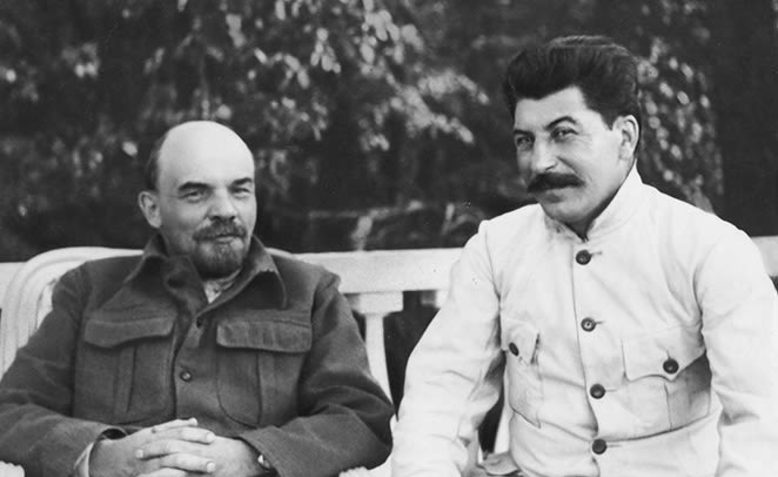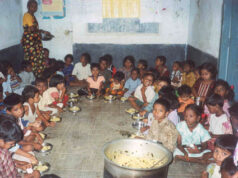Nikita Khrushchev’s denouncement of Stalin and his criminal rule at the 20th Congress of the Communist Party in 1956 remains an important milestone in the history of the now-discarded project. In moving away from the totalitarian rule of Stalin, some contemporaries saw hope for a more democratic and tolerant USSR where the party would eschew the personality cult.
However, Adam Adil writing in the Freedom First in 1961, dismissed the destalinization project of Khrushchev. He questioned the complicity of the leaders who now denounced Stalin’s brutality in perpetuating the same system. Moreover, as Khrushchev promoted the policy of peaceful co-existence with the capitalist sphere, the more strident Maoist China took the Stalinist line of an inevitable conflict between capitalism and communism.
For Adil, Stalin’s totalitarian state was a logical continuation of the Marxist prescription via Leninist methodology. Marx’s advocacy of violent class struggle translated into the Bolshevik revolution to the dictatorship of the single party in the name of the proletariat. Adil argued that Lenin himself had dictatorial tendencies and hence any bid to destalinize would need to confront the basic tenets of Marxism-Leninism. It would take a Mikhail Gorbachev to unravel the system but in 1961 that laid way ahead in the future.
Produced below is an excerpt from the article.
In his speech on the opening day of the 22nd Congress of the Soviet Communist Party, Mr. Khrushchev spoke brave words: ‘As a mighty tree with deep roots does not fear any storm, so that new socialist world does not fear any adversary or shock.’ From what followed at the Congress itself and subsequently, one can safely conclude that Mr. Khrushchev’s assertion was more in the nature of wishful thinking than a statement of fact. For the first time in its history the communist world has begun to show up, more pointedly and more abjectly, its internal contradictions, its political and psychological stresses, clash of its personalities and their mutual rivalries and bickerings. It is obvious that the “socialist” world is no longer a mighty tree ( if ever it was ) with deep roots and it has to contend with its own problems as much as with the external ones.
The de-Stalinisation process which Mr. Khrushchev set in motion with his speech at the 20th Party Congress in 1956 and his world shocking admissions about the Stalin regime, (those were no revelations as they were known throughout the world for a number of years), has been apparently going on still; and this itself has divided the communist world into two, hostile camps: one represented by the Soviet Union, which decries Stalin and talks about “co-existence” and the other by China, which extols Stalin and speaks about the inevitability of war between capitalist and socialist nations with the ultimate destruction of capitalism. Russia enjoys the support of most East European Communist countries and China has the backing of Albania, the tiny Muslim country on the Mediterranean. The communist parties in the various non-communist countries are generally divided into factions, which owe their loyalties to one or the other camp within the communist world. All this indicates that what was claimed to be the ‘monolithic community’ of the communist world has received a shattering blow.
The removal of Stalin’s mummified body from Lenin’s Mausoleum in the Red Square and its burial at an obscure place, and the changing of the name of the cities, towns or streets which were, for over two decades called after Stalin, represents the dramatic finale of the efforts of the present Communist rulers of Russia to extricate themselves from their past and put on a new garb of legitimate successors of Lenin. Is it not a fact that each one of the present leaders of the Soviet Union was closely associated with Stalin’s regime and abetted and helped in the imposition of a reign of terror and death over the Russian people for nearly three decades? It is rather intriguing that none of these soviet leaders has given expression to a sense of guilt or repentance for his own role in the perpetuation of Stalinist tyranny and in the cold murder of thousands of their own innocent comrades.
The full text of the article can be accessed here.
IndianLiberals.in is an online library of all Indian liberal writings, lectures and other materials in English and other Indian regional languages. The material that has been collected so far contains liberal commentary dating from the early 19th century till the present. The portal helps preserve an often unknown but very rich Indian liberal tradition and explain the relevance of the writings in today’s context.
Read more: Memories of SV Raju
Post Disclaimer
The opinions expressed in this essay are those of the authors. They do not purport to reflect the opinions or views of CCS.






